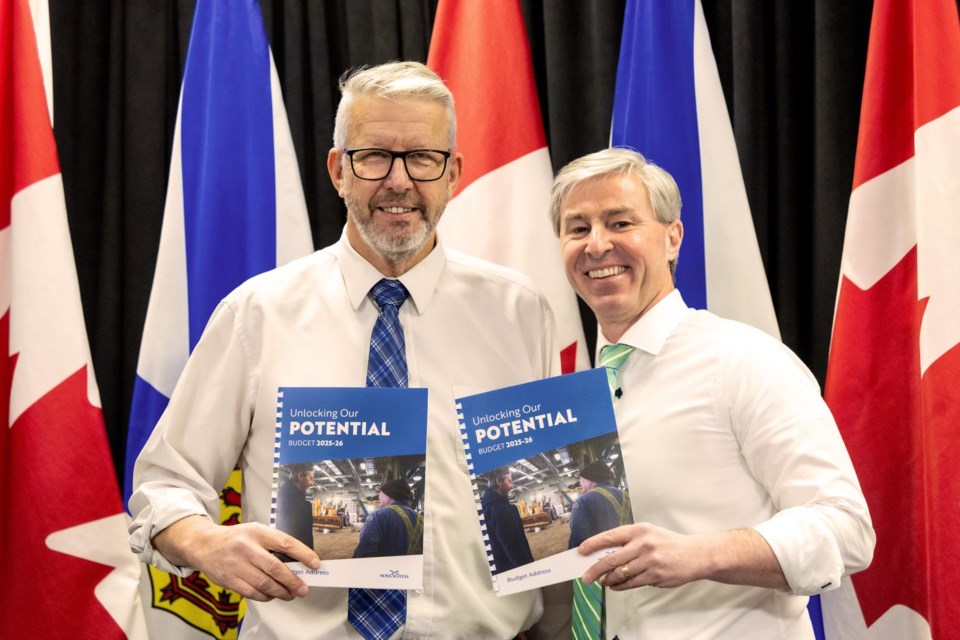HALIFAX — Nova Scotia's government has put forward a bill that would lift blanket bans on uranium exploration and hydraulic fracking of fossil fuels — a move the premier says will make the province more self-reliant in the face of potential U.S. tariffs.
The province says the omnibus bill tabled Tuesday would repeal the existing Uranium Exploration and Mining Prohibition Act to allow for research about the presence and distribution of uranium in Nova Scotia. It would also make changes to the Petroleum Resources Act to “create the potential" for hydraulic fracking to access onshore natural gas.
Premier Tim Houston told reporters the legislative changes are needed to make the province better able to withstand economic challenges that would result from U.S. tariffs. President Donald Trump is threatening to impose tariffs of 25 per cent starting in March on Canadian exports.
There's been a moratorium on uranium exploration for more than 40 years and a ban on mining it for 15 years. The former Liberal government passed legislation banning fracking in 2014. Officials with the Department of Natural Resources said the existing legislation has significantly limited industry interest in exploring for natural gas and critical minerals in Nova Scotia.
"With the economic challenges we face right now as a country and as a province, it's time to pull every lever that we have. We're rich in resources and we can develop them safely, so it's time to have that discussion and move forward," Houston said.
The premier said he’s confident there’s a way to exploit these resources while meeting provincial greenhouse gas emissions reduction targets.
However, Thomas Arnason McNeil, a senior energy coordinator with the Halifax-based Ecology Action Centre, said he can't fathom how that could be true.
"In terms of their ability to do this sustainably or safely, there is no way," he said in an interview Tuesday. In terms of fracking, "we're talking about a potential explosion of emissions that will completely derail our targets," Arnason McNeil said, adding that fracking can result in the leaking of methane gas, a potent greenhouse gas.
Fracking could also pose a serious risk to the province's supply of drinking water, he said. "Trapping toxic effluent from fracking underground or in a tailings pond without any impact on our drinking water is just a complete fantasy."
Uranium is also a concern, Arnason McNeil said. Despite advancements in how uranium is retrieved, there remain environmental and health risks associated with the radioactive waste products that come from mining the element, he said.
In response, Houston said assessments and research will be done to protect the province. "As projects come forward, there will be extensive reviews, consultation. The process will be followed. Having just a blanket ban — that's lazy policy," he said.
The Natural Resources Department says it estimates there is seven trillion cubic feet of recoverable natural gas potential in the province. With uranium, the department said it won't know how much is underground until the legislation is changed and research moves forward, adding that international demand for it continues to rise.
Both resources "are being mined safely in other jurisdictions within Canada," Houston said.
"It could be done safely here as well. It's time for us to be adults about that."
This report by The Canadian Press was first published Feb. 18, 2025.
Lyndsay Armstrong, The Canadian Press



